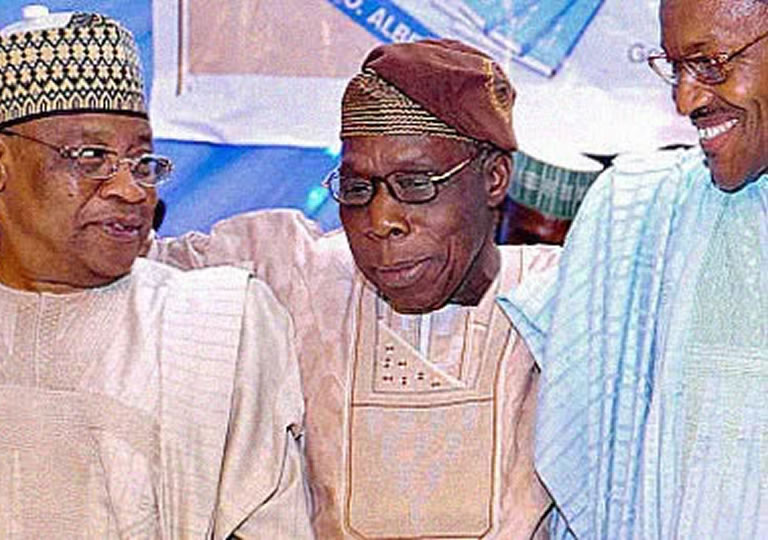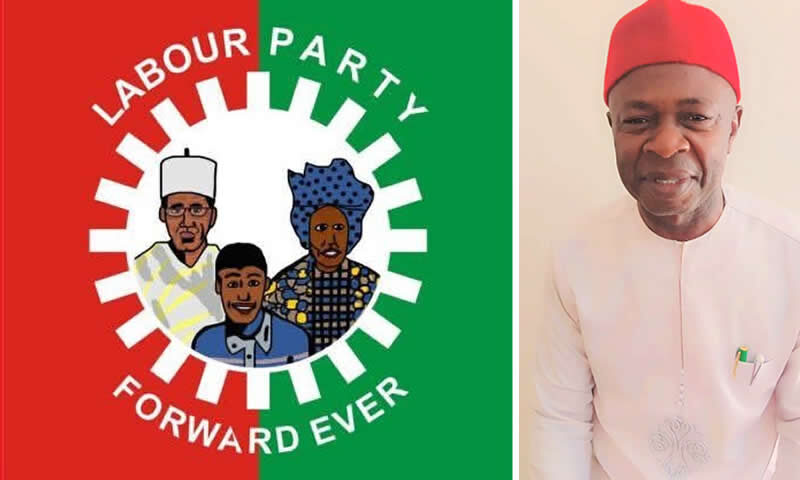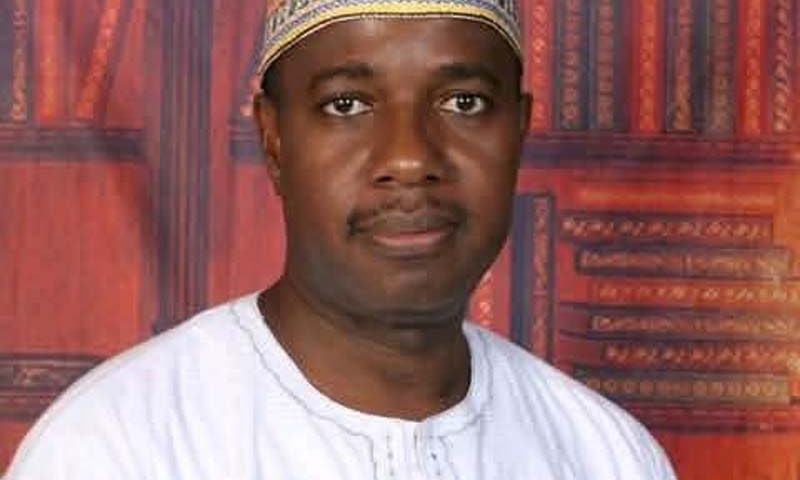By Njoku SaintJerry A., Merenini Ernestine Onyinyechi
for the records, one good thing the General Mohammed Buhari administration has done for Nigerians is; opening their eyes to see reality of the deceit of an acclaimed unity that is flawed and unworkable
Nigeria’s fragile and weakening unity has become an issue of utmost concern for many indigenous people that forms the ethnic nationalities forged together under the colonial appellation.
National unity is never easy to attain, for a nation like Nigeria given that the circumstances in our times are factored from civil unrest, corruption, ethnic and religious divisiveness, dating back to the leadership of former heads of state and the roles they played in each political dispensation.
Until the emergence of Nigeria’s 1999 democratic dispensation, the country has never been so polarized as it is till date after the sordid experience of the civil wars. The worrisome situation calls for questioning and a probe of men who has led this country before the advent of the1999 democracy and after it.
The Culture of Unity the British bequeathed to Nigeria
In a recent interview granted by former Head of State, General Ibrahim Babangida, to one of the media outlets, he confirmed the abysmal participation of the political elite in destabilizing the unity of the nation state, not excluding himself, IBB admitted that even the unity they inherited from the colonialist at their departure from Nigeria in the 60’s, both former and present Nigerian rulers have not been able to come together to build the regional blocs into a nation state. In his own statement; “we rather live with the culture of unity that the Europeans handed over to us — the culture of Northern Nigeria; Eastern Nigeria; Western Nigeria, since the political class do not take the idea of nation building seriously.”
“President Mohammed Buhari hurriedly and summarily brought to a national focus what IBB had identified and failed to address,
That political class include leaders who took over from IBB and had led the democratic dispensation till today, their positions to National unity over the years can be factored from how they have used their positions to instigate the making and breaking of Nigeria’s unity including political and religious affiliations.
The existence of religious mistrust and deep ethnic bias
Ibrahim Babangida government oversaw the establishment of several state security apparatus and programmes that he believes will promote Nigeria’s unity, Unfortunately, his regime met with series of ethnic and religious conflicts related to his decision to increase cooperation with the Muslim world which it is alleged might give rise to extremist tendencies. IBB made considerable effort to address these religious mistrust and ethnic bias yet he was unable to address the situation until he relinquished power to a democratic administration.
Obasanjo led the emergence of the Nigeria democratic dispensation in practice today and had established some of the policy templates in practice today including security formations, broad ministerial appointment and various national issues addressing the unity question.
While appointing members of his cabinet, he selected an even number of ministers from the north and south of Nigeria, although the allegation that a majority were Christian upset some Northerners whom were predominantly Muslims leading to some state declaring the adoption of sharia laws as state judicial policy in order to spite the President whom they do not consider acceptable to lead them as long he remains a non-Muslim from the South, this raised a major debate on the question of Nigeria unity again.
The Obasanjo administration witnessed a full-blown threat on Nigeria’s unity on September 1999, the then Governor of Zamfara State, Ahmed Sani, had announced the full introduction of sharia law as the basis of the state’s judicial system, this sparked alarm among Christian minorities across northern Nigeria, with protests and counter-protests generating violence, especially in Kaduna.
Not willing to let the mistrust based on religious belief and indoctrination escalate further, the Obasanjo administration did not bother to pursue the cause further believing that the matter will die down in the cause of time, rather than abate, other states in the Northern region join in the call for religious intolerance exposing at early stage the inability of the Nigerian leaders to address the menacing division that is rooted in Nigeria’s skin as a nation of conflicting regional blocs of ethnic nationalities that has failed to address their differences..

The question of Nigeria’s position as a secular state
At his departure, emerged Dr. Goodluck Jonathan’s administration as the 3rd democratically elected president. By this time, the issue of religious and political divisions the Obasanjo administration failed to address has become unprecedented giving rise to a militant approach under an Islamic group named Boko Haram, whose mission was very defined as they made it clear that they do not accept Nigeria’ secularity as a nation but rather would prefer an independent Islamic state under strict Sharia laws.
Like Child’s play, Boko Haram grew as few discontents Islamic group of young men to something gravely devastating, threatening the disintegration of Nigeria’s acclaimed unity.
With the increasing nature of violence perpetrated by the Boko Haram sets, they introduced complete terrorist tendencies unleashing massive destruction of lives and property in the Northeast unless everyone accepts their religion and be conformed to their political leanings.
“From all antecedents, it is obvious that almost all Nigerian leaders have a fair knowledge of the unity issue and conflicting positions of the ethno-religious tendencies of the indigenous people of Nigeria that has characterized each region that was forged
With the departure of the Goodluck Jonathan’s administration in 2014, ousted due to growing concerns of massive corruption in his government, Nigeria heartily welcomed General Muhammadu Buhari as the 4th democratically elected President.
General Muhammadu Buhari has swayed the interest of majority of Nigerians for his acclaimed stand on zero tolerance to corruption, integrity and commitment in rebuilding the fragile Nigeria’s unity.
The excitement of many Nigerians was short-lived as Buhari on a daily and gradual basis begun to unveil a scarier future for Nigeria’s unity evidenced in his skewed appointment of members of his cabinet from his ethnic Fulani’s and Muslim religion. The matter begin to grew worse as the Buhari administration began to make bold its statement of ethnic allegiance to his tribe in all matters affecting the national coexistence of the various ethnic nationalities that has made up the Nigerian state evidenced by his introduction of obnoxious and unacceptable policies like the RUGA, the Waterways Bill, enlisting repentant Boko Haram terrorist into the Military, whom have by now expanded to an ethnic militia group named Fulani Herdsmen, etc.
President Mohammed Buhari hurriedly and summarily brought to a national focus what IBB had identified and failed to address, Obasanjo noticed within 4 months into his administration but failed to address, Musa Yardua in his brief stay as the Head of State, made attempt but failed as he took an abrupt exit, while Goodluck Jonathan also failed to address the same problem and now as they say; “The Chickens had come home to roost”
Continuous failure of Nigerian rulers to address the unity question
From all antecedents, it is obvious that almost all Nigerian leaders have a fair knowledge of the unity issue and conflicting positions of the ethno-religious tendencies of the indigenous people of Nigeria that has characterized each region that was forged under the name Federal Republic of Nigeria, However, the question of unity has only grown in theory, on papers as receipt for meal and ticket to a super comfort life of luxury.
Confronting the issue headlong will mean losing your meal ticket and place of comfort and power. Therefore, nobody has shown any genuine seriousness in addressing the Nigeria unity question until the Mohammadu Buhari administration chose to genuinely opened the can of worms eating up Nigeria’s unity.
If for the records, This will be one good thing the General Mohammed Buhari administration has done for Nigerians by opening their eyes to see reality of the deceit of an acclaimed unity that is flawed and unworkable.
Of recent, conscientious Nigerians has resolved to address the imbalance by advocating for a restructured nation state under its former regional bloc as advised by IBB in his televised interview. While others, especially among the political class continue to pursue the false rhetoric of Nigeria’s unity not negotiable and cannot be restructured.
Every sane Nigerian knows the cancerous disease eating deep to the imminent collapse of the nation state and that is the unworkable administrative system that continue to widen the gap of mistrust and ethnic bias of the various ethnic nationalities that were forged together to form the nation state of Nigeria
Nigeria is getting bigger by population and not by landmass. Power must devolve, the governance structure must expand for people with genuine intentions to come in and take this responsibility in nation building. When people feel that sense of inclusiveness, they will naturally contribute to peace building and reduce agitations that are based on inequalities and exclusions
The call for State creation and dysfunctional Federating structure
All that noise about creating more state structure if properly scrutinized will be found to emanate from a selfish tendency of control and more access to control of the Federal allocations which has continued to serve as one visible chord of deception of Nigeria’s indivisibility.
The 36 states were created for this purpose, to give access to regional blocs, tribes and ethnic nationalities to be strewn on a single line of authority, of subjugation and manipulation. It never addressed that question of unity in diversity evidenced in the dysfunctional administrative structure of Nigeria’s federalism.
Rather than encourage unity and participation of all the ethnic nationalities and tribes to join forces to build a progressive nation state it divides it further to a point of caustic hatred and mistrust based on a federal sharing formular of benefits to each region.
This is where the General Ibrahim Babangida idea of returning to the regional blocs bequeathed by Nigeria’s colonial forces would be commendable since the conflicting units cannot afford to stay together to build a viable nation and the more reason people continue to refer IBB as the man who have made the right sacrifices for Nigeria’s unity despite his numerous shortcomings.






